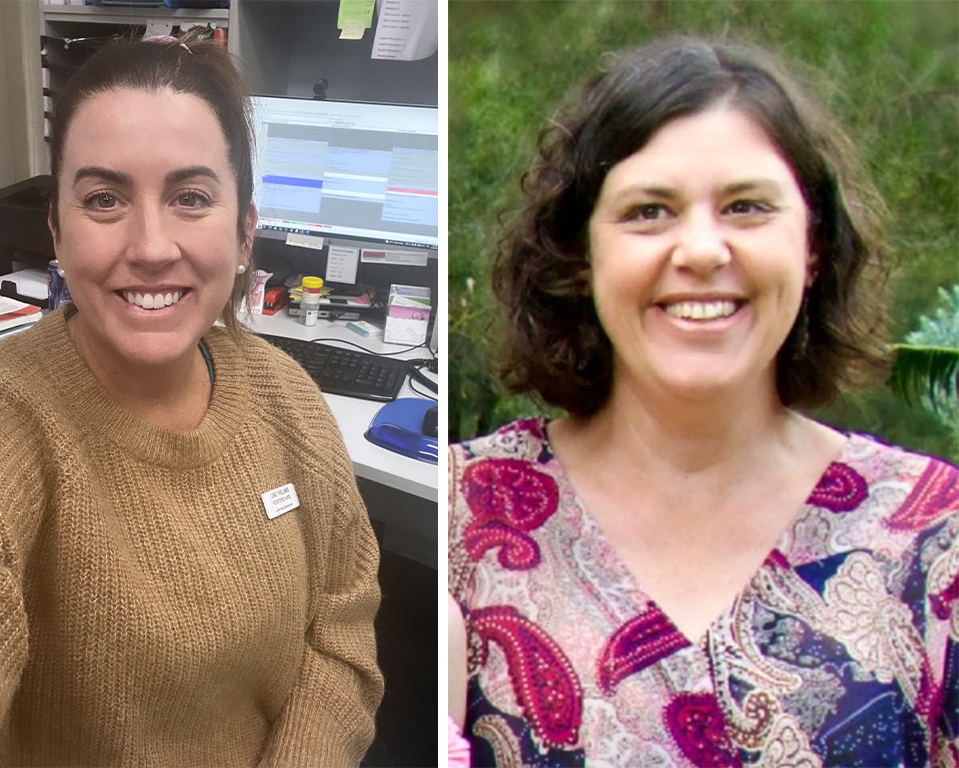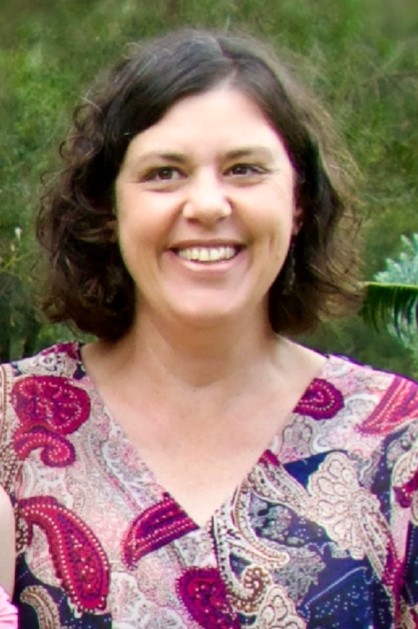
International Nurses Day 2023 - Part 1
This Friday 12 May, healthcare teams across the world will be celebrating International Nurses Day.
This year's theme – Our Nurses, Our Future – speaks to the crucial role of nursing in providing high quality and accessible reproductive and sexual healthcare.
Nurses are integral to Family Planning Australia, and we are taking this opportunity to profile just a few of our brilliant nurses.
In the first of two parts, showcasing the sheer diversity of nursing at Family Planning Australia, we're getting to know Natalie, who moves between clinical and research work, and Carly, who takes women's health clinics to Aboriginal communities in remote NSW.
Natalie

Registered Nurse Natalie says working at Family Planning Australia has given her a broad scope to explore diverse aspects of nursing and to be a trailblazer in the profession, exploring new and interesting ways of working which may not always be possible in more traditional work environments.
"I have worked at Family Planning Australia for a decade, in clinic, Talkline, and over the past two years I have also worked with the research team. This has allowed me to keep learning, and to deepen and develop my passion for providing our patients with high quality reproductive and sexual healthcare.
"I'm currently wrapping up a study on medical abortion, and recently worked on a project exploring experiences of contraceptives in the CALD community."
Natalie says she is motivated by the potential to use research to improve reproductive healthcare for patients. Working directly with patients and on the research team, she provides research recruits with the information they need to take part in studies. She also brings patient-facing and clinical expertise into research development and analysis.
Natalie is enthusiastic about the role of nursing in Family Planning Australia, saying she particularly enjoys the autonomy and team-based interdisciplinary working relationships.
"The best thing about working at Family Planning Australia is the autonomy. Nurses are trusted with their skill set. They work alongside doctors, and with a considerable level of autonomy across a broad scope of practice, from STIs, to contraception and pregnancy counselling. The doctors, nurses, and reception staff rely on and respect each other," she said.
After completing her Bachelor of Nursing, Natalie started her career on hospital wards, including a spinal injuries unit and a burns unit, and in endoscopy. She also used her qualifications to travel, working in hospitals in London and Edinburgh in the UK, before moving into the world of reproductive and sexual health nursing, via cervical screening with the Aboriginal Medical Service.
Natalie cares deeply about accessibility, and she is proud of the work Family Planning Australia does to improve access.
"We create trusted resources which are translated into relevant languages, and clinics always provide access to interpreters. It’s so important to explore appropriate ways to build trust with patients and use clear and non-judgmental communication and confidentiality."
Natalie is keenly aware of how special it is to work in reproductive and sexual healthcare. "It's amazing to reflect on the relief which clients feel when they come to a healthcare setting which specialises in reproductive and sexual healthcare. It’s a privilege," she said.
Natalie said she intends to stay in the field until she retires - "…or as long as I'm not too old for people to feel comfortable talking to me about their STIs!"
Carly

Carly is a Registered Nurse based in Family Planning Australia’s Dubbo clinic. She assists with a range of reproductive and sexual healthcare services, including STI checks, contraception, pregnancy options and cervical screening.
Carly started her nursing career in Justice Care, providing healthcare for patients in prison. After five years there, a passion for women's health led her to train as a midwife, and from there she jumped over to work in reproductive and sexual healthcare.
Carly is committed to providing care for marginalised communities and is particularly driven by the health gap which exists for Aboriginal and Torres Strait Islander people.
At Family Planning Australia, she takes specialised women's healthcare to areas where patients would otherwise need to travel four or five hours for support. Each fortnight she travels to Brewarrina and Walgett to run Women's Business clinics, with the Aboriginal Medical Service. Carly described the outreach clinics as a stepping-stone, improving healthcare access for patients in remote NSW.
"Brewarrina has a small community with very limited health services nearby, and some of the patients we meet haven't seen a nurse or a doctor for years," Carly said.
Carly emphasises the importance of building trusting relationships - "I think that having an all women team bringing our clinics to outreach settings has been really helpful for this."
"Working in reproductive and sexual health care at Family Planning Australia gives me the opportunity to work autonomously, with communities I care about.
"Most of the time Family Planning Australia's Dubbo clinic is nurse-led which brings a real sense of challenge and accomplishment to our work. While we don't have a doctor on site all the time, there is always a doctor to call on, for backup and advice. When we go to outreach as a nurse-led team it's the same kind of thing."
Running outreach services hasn't always been straightforward, and communities in regional and rural NSW have faced extraordinary challenges, most recently in the form of flooding which brought many essential services to a standstill and wreaked severe financial damage.
To bring the Family Planning Australia outreach clinic to its rural locations, Carly and the team have had to contend with flood waters, 45-degree heat, emus, snakes, kangaroos, and of course a global pandemic. Carly is deeply engaged in her work and has an infectious passion for equitable access to healthcare. "I love working with women, providing education, support, and being an advocate. We are there for our clients throughout their reproductive lifespan – from puberty, to menopause, and beyond," she said.


